Description
BCT’s coffee special includes three of our best dark roast coffees. Featuring our:
Indian Mysore Nuggets – Extra Bold
Year in to year out, this is always one of our most popular coffees, at times we have trouble keeping it in stock!
Mysore coffees are the best known and the most popular of all Indian coffees, they possess good body and snappy acidity. The overall taste profile is very unique, with spicy overtones. These spicy overtones come from the cinnamon, cardamom, nutmeg, cloves and pepper that grow alongside the coffee trees.
India Mysore Nuggets Extra Bold is sourced from several family-owned farms from the Chikmagalur District in Karnataka, India. Many of the farms have been in operation for close to one hundred years, passed down through the family from one generation to the next. Our Mysore Extra Bold is a fully washed coffee cultivated above 1,200 meters.
This lot is full bodied, with a rich full taste and moderate acidity. Very interesting and exotic, I like to roast this coffee a little darker, just into the second crack.
Tasting Notes:
Indian Mysore Nuggets has been a favorite of Burman Coffee and customers for many years and this crop does not disappoint. The aroma is nutty, woody, and some slight smokiness. Many of the notes in the aroma come through in the flavor like walnuts and some smoke. There’s dark fruit, oak, licorice, and some vanilla spice, like a good dry red wine. The finish has a subdued brightness to it with just hints of lemon zest at lighter roast points. The body is medium to full depending on roast and brew. There’s a reason people keep coming back to this bean. It’s a smooth all around great stronger cup of coffee.
Roasting Notes:
We recommend roasting this bean a bit darker, strong medium to traditional dark roasts. Too light and the brightness is too dominant and the boldness not developed enough.
Regional Details
If you think coffee from India sounds uncommon, wait until you hear about the Western Ghats mountain range where this coffee was cultivated. It is a UNESCO World Heritage Site and one of the most biologically diverse places in the world with more than 5,000 species of flowering plants and 508 different species of birds. The Neelakurinji flower is so uncommon that it only blooms every twelve years. And the legends say that the Western Ghats mountain range is the location where the first cultivated coffee in India arrived, from seven raw beans brought from Mocha by a Sufi saint on a pilgrimage to Mecca in the 17th century.
Sourcing Details
This lot comes from an estate in the Somwarpet region, which has 330 acres cultivated with coffee, oranges and peppers. The estate has its own mill where coffee cherries are sorted, depulped, fermented, washed and then dried on patios.
Nicaraguan Jinotega BCT Select – Washed Processed
This Nicaraguan Jinotega coffee is sourced from family farms located more than 4,500 feet above sea level. Coming from family-owned farms organized around Asociación Aldea Global Jinotega (Aldea Global), an organization operating in the department of Jinotega, Nicaragua. Aldea Global has more than 500 members and 47 per cent are women, the result of investing revenues in gender equality programs focused on healthcare and small business lending. Olomega coffee is produced by descendants of an indigenous group called the Chorotegas who live in the village of Olomega.
Tasting Notes:
Great daily drinker from medium to dark roasts. Good body and lower acidity, nice and strong semi-sweet malty tones with a hint of spice in the aftertaste. At the light to medium roasts it will show just a pinch of crispness and a hint of earth, not super citric but will leave a dryness to the tongue, a bit floral in its aromatics but not in the cup. Just before to touching 2nd crack gets rid of almost all signs of any acidity and adds some complimenting smokiness to the cup profile. A very smooth cup from a medium roast to just before 2nd crack. Into 2nd crack will get some edgy strength that dark roast fans will like.
Roasting Notes:
Good from a medium roast to as dark as you want to go. Light roasts just do not develop those lovely malty tones enough. Not being an overly sweet cup, we think a quicker roasts helps retain a bit more crispness and balance to the cup qualities.
Indonesian Sumatra Gr. 1 – Mandheling
“Mandheling” is one of the broadest coffee trading terms for a regional blend in Indonesia, applying to almost any blend of wet-hulled coffees from across the northern half of the island of Sumatra that suit a generic cup profile that is heavy on the palate, earthy in balance, and complex. Regional coffee blend distinctions in the northern provinces of Sumatra were originally based on human ethnicity, rather than geography: Mandheling is a widespread cultural group found across Sumatra and Malaysia; “Batak”, to use another example, is a Mandheling sub-ethnicity based around Lake Toba and considered a smaller regional coffee pedigree unto itself, and often marketed as such.
The large majority of coffee blends labeled “Mandheling” tend to be drawn from across a variety of local parchment collectors across two main coffee producing provinces, both of which are fortified with volcanic soils: Aceh and North Sumatra. Aceh province (pronounced AH-CHEY) is the northernmost province of Sumatra and its highland territory, surrounding Lake Tawar and the central city of Takengon, is considered to be the epicenter of one of the world’s most unique coffee terroirs. North Sumatra province, just below Aceh, is a varied territory with high elevation grasslands, mountain ranges, and the massive Lake Toba, another of the island’s most famous coffee producing areas.
Tasting Notes: A very clean traditional Sumatra cup. Best from medium to dark roasts. Fuller bodied with some nice exotic incense spice notes intermingled with a bakers chocolate and smoky cup profile. Light roast are not recommended (for almost all Indo coffees). Medium roasts were nice and balanced, a little lemony acidity upfront mixing with a bunch of spice and hints of an earthy slightly peaty chocolaty factor; a decent roast point for pour-overs or drip. Darker roasts were fuller bodied and very smoky with the spice lingering in the aftertaste, very low acidity; good for dark roast fans, espresso or blend bases.
Roasting Notes: A nice screen for a Sumatra makes it a bit easier to roast then many Sumatra beans. Low in chaff due to the processing (wet-hulled). A longer setup is nice for this cup, gives much more rounded edges and smooth characteristics. Very light roasts are to be avoided, a medium to dark roast matches the cup profile very nicely.
Sumatra’s smallholder coffee is a complicated process. Notably, processing is typically not overseen by a single individual or team; instead, coffee moves task by task through different parties before reaching its final, fully-dried, state. Coffee farms tend to average 0.5-2 hectares each. Every coffee village has a collector (or more) who receives fresh-picked cherry, or humid parchment, for processing each day. Once a batch of coffee has been depulped, fermented overnight, washed clean, and then quickly sun-dried to the touch, each collector then delivers the batch to a central miller. It is at the mill where the coffee is mechanically hulled of its parchment, leaving behind just the soft, high-moisture coffee bean (thus earning the term “wet-hulled”), all of which is spread out on large patios to continue drying.
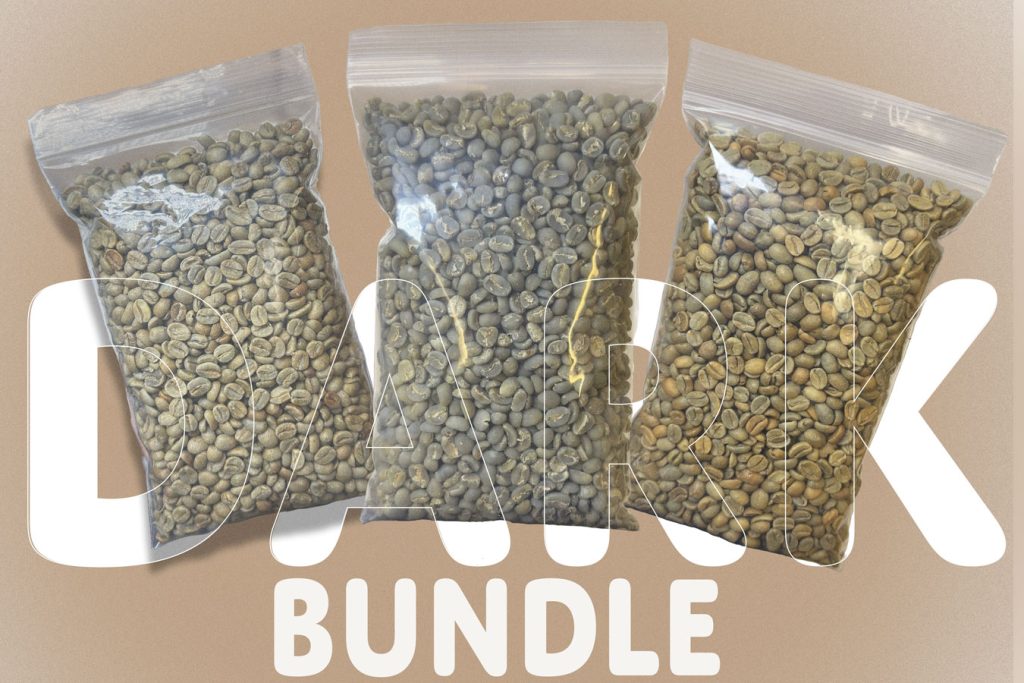
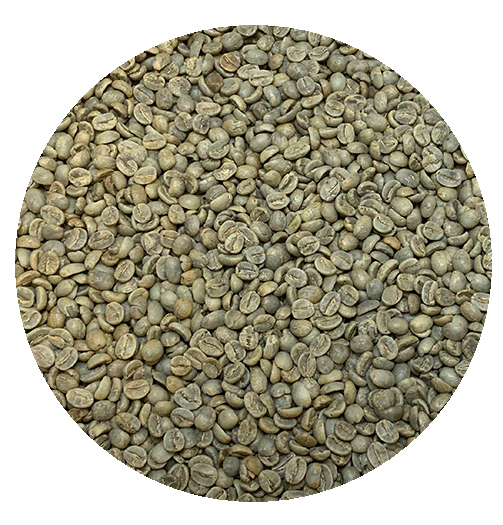
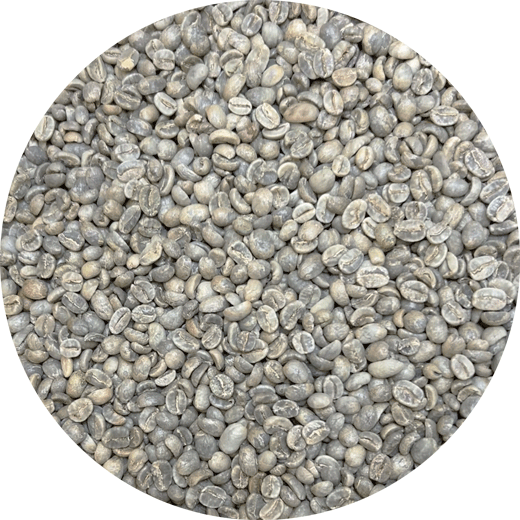
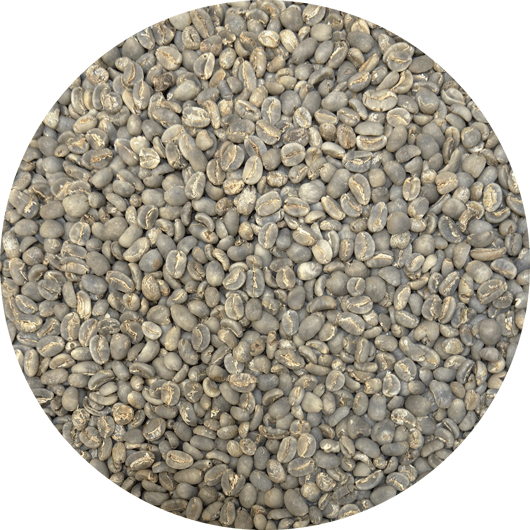
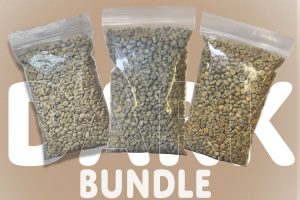
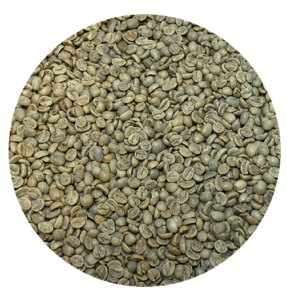
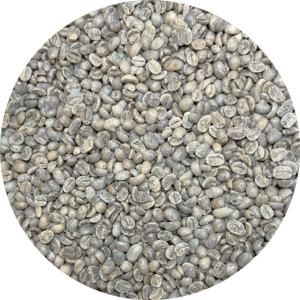
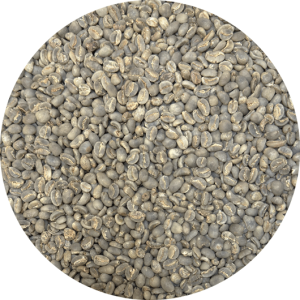
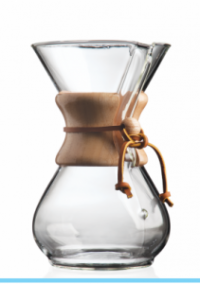
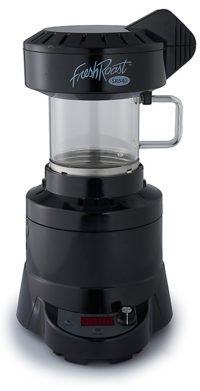
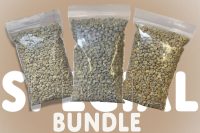
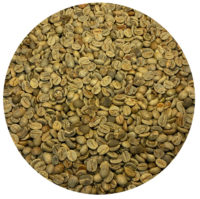

Reviews
There are no reviews yet.